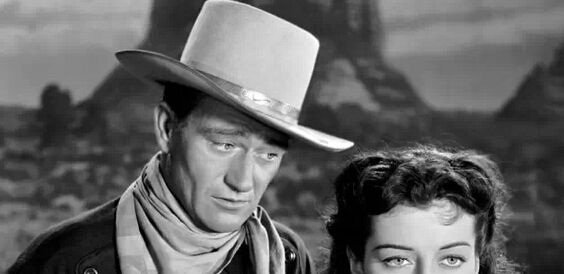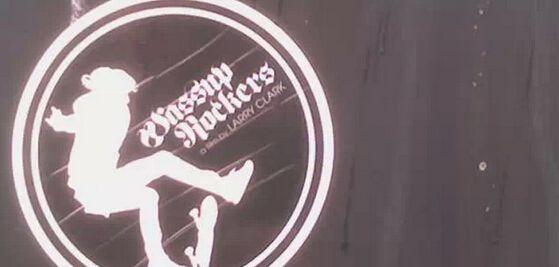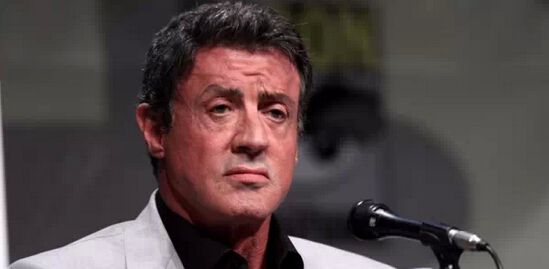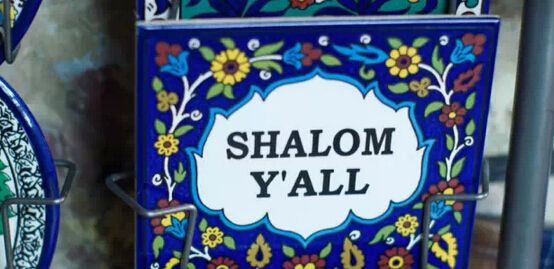美国人怎么说“您吃了嘛?”流行问候语菜鸟指南
Greetings are like a mixed bag of candies: they’re generally short and sweet, and they come in a number of different varieties. From the casual to the formal, various American salutations are used depending on the social situation. Interestingly enough, a lot of these greetings have long cultural histories tied into them as well. Here is a beginner’s guide to some basic American greetings.
阿甘说,生活呢就像一盒巧克力,看东西说,问候语呢,就像一袋混合口味的糖果:甜味浓郁却利落,口味繁多。从生活口语到正式问候,社交场合不同,美国人也有不同的寒暄方式。而且,很有意思的是,其中许多问候方式都有着悠久的文化历史渊源。下面,看东西就为寒暄界的菜鸟们送上福利,奉上一些简单道地的美式问候:
“Howdy”
乡村主流范儿“你好”

Commonly relegated to the down-home boys of the Southern states and Western movie stars like John Wayne, “howdy” is an informal greeting often thought to represent a shortened version of the phrase “how do you do?” Generally thought of as a hallmark of the vocabulary of states such as Arizona, Texas and New Mexico, it is believed to have come from Native American greetings to settlers.
这个词其实是“how do you do(你怎么样)”的非正式删减版,虽然被公认为是X格较低,但却十分的接地气儿,一挂在嘴边儿就让人想起美国南部诸州的乡村大男孩和西部电影里的经典牛仔形象,比如约翰•韦恩(曾出演《关山飞度》)。这个词是美国亚利桑那州、德克萨斯州和新墨西哥州方言的经典词汇,据说最早来自印第安人对美洲开拓者的问候。
“Whassup”
潮酷随性范儿“你好”

“Whassup?” “What’s up?” “Sup?” They all mean the same thing. This is an informal slang greeting you’ll hear in many places across the United States, basically meaning: “How’s is everything going?” The long slurred form of the phrase “whassup” gained popularity in the 1990s from a series of well-loved beer advertisements, where characters tried to outdo each other with progressively longer “whassaaaaps”.
“Whassup?” “What’s up?” “Sup?”这些都是一个意思。这句俚语问候可以说早在美国“烂大街”,它的意思基本上就是:“一切可都还好?”这句长长的俚语的发音要诀就是一定要说得含糊不清楚,它成名于上世纪90年代,出现在一个饱受追捧的啤酒广告系列中而一跃流行;广告里的老哥儿们一个个接起电话都是“Yo! Whassup!”,一个比一个发音含糊尾音拖得老长,也是醉了。
“Yo”
干净利落范儿“你好”

Short, sweet and to the point, the one-syllable “yo” might be the simplest American greeting in the English language. The word originally came from Philadelphia, Pennsylvania – a largely working-class city in the Northeast – but a series of iconic uses popularized the word in the American vocabulary. Most famously, Rocky Balboa, the main character in the titular “Rocky” films, used the word as a sign of his Philadelphia roots. The word also gained wide usage in the hip-hop and rap communities in the 1990s, filtering into the mainstream conversation through the popularity of that lifestyle and music.
掷地有声,热情友好,开门见山,它只有一个音节,是英语语言中最简单的美式问候——唷!(还是英语看着更舒服是不是?……)“唷”最初来自宾州费城,美帝东北部一个以工人阶级为主的城市,但是之后一些娱乐界标志性的用法才真正地让它走入群众心中。其中最为有名的用法来自洛奇系列电影中的主角洛奇拳王,他用这个词来代表自己的费城背景。这个词同时也在上世纪90年代的嘻哈说唱圈儿里被广泛使用,之后随着嘻哈生活方式和音乐的流行而逐渐渗透进入主流语言。
“Aloha”
阳光热情范儿“你好”

You might need to head to a tropical paradise to hear this island greeting. “Aloha” has been used in the island state of Hawaii since the mid-19th century to mean not only a greeting, but also a farewell. In the decades since then, Hawaii has become quite the tourist destination – with countless visitors to the “Aloha State” getting a taste of the island lifestyle and bringing back a phrase or two home with them.
要听到底的“Aloha”,恐怕你得赴夏威夷州微服一趟。它从19世纪中期就在夏威夷开始使用,而且它不仅是问候语,也是告别语。自那之后的几十年中,夏威夷已经成为一个旅游热门去处——数不清的友人涌向这里,之为一品海岛生活风情,同时带一两句方言满载而归。
“Shalom”
高端深刻范儿“你好”

“Shalom” is a greeting normally used in the American Jewish community. It comes from the Hebrew word for peace, completeness, prosperity, and welfare – and just like “Aloha”, it can mean both hello and goodbye. It is frequently used as a more general blessing, and is often put in combination with other Hebrew words in both colloquial and religious contexts.
“Shalom”是在美国的犹太人社群中常常使用的问候语。它来自希伯来语,代表和平、整全、繁荣和幸福。就像“Aloha”一样,它既是问候语又是告别语;更多的时候它是作为通用的祝福语,经常和其他的希伯来语词汇合起来使用,在白话和宗教语境中都频繁出现。
@看东西_Kandongsee
Kandongsee (看东西)是由来自中国和西方顶尖大学的“学霸团队”创办的,旨在为中国学生剖析西方文化并介绍真实的留学生活。
欢迎关注我们!微信: Kandongsee
感谢你的关注与支持!